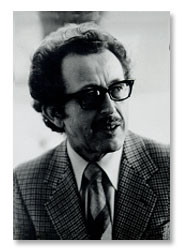
Alfred Walter was born in Southern Bohemia in 1929 of Austrian parents. He studied at the University of Graz and in 1948 was appointed assistant conductor to the Opera of Ravensburg. At the age of twenty-two he became conductor of the Graz Opera, where he continued until 1965, while serving at Bayreuth as assistant to Hans Knappertsbusch and Karl Böhm. From 1966 until 1969 he was principal conductor of the Durban Symphony Orchestra in South Africa, followed by a period of fifteen years as General Director of Music in Münster. In Vienna he worked as guest conductor at the State Opera and in 1986 was given the title of professor by the Austrian government.
In 1980 he was awarded the Golden Medal of the International Gustav Mahler Society.
For Marco Polo, Alfred Walter recorded more than twenty volumes of the label’s Johann Strauss II Edition, works by von Schillings, von Einem, de Bériot, Reinecke and all the symphonic works of Furtwängler and Spohr.
Alfred Walter passed away in 2005.
Born in Vienna and a pupil of Max Bruch in Berlin, Oscar Straus followed the advice of Johann Strauss, who told him to gain experience by conducting in provincial theatres. In Berlin he won some fame in the Überbrettl cabaret, for which Schoenberg also wrote. Returning to Vienna at the turn of the century, he began to write operetta in a series of works that rivalled in popularity those of Lehár. In 1939 he moved to Paris and then to New York and Hollywood, returning after the war to Bad Ischl, where he died in 1954.
Stage Works and Film Music
Der tapfere Soldat, known in English as ‘The Chocolate Soldier’, won particular success in America. Other popular operettas include Der letzte Walzer (‘The Last Waltz’). He wrote film scores, notably for the film of Schnitzler’s La ronde.






























